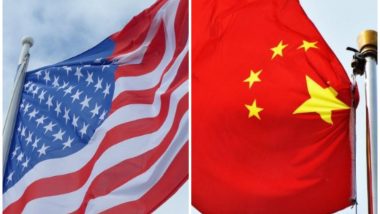The U.S. has said it plans to impose 25% tariffs on $50bn worth of Chinese imports "shortly" after mid-June. The announcement comes after weeks of parleys between U.S. and Chinese delegations during which talks of tariffs had been put on hold.
But the White House said on Tuesday that a final list of imports slated for tariffs will be published by 15 June.
China said it was both "surprised and unsurprised" by the move. In a statement, China's Commerce Ministry called on the U.S. to act in the spirit of earlier joint comments. It said, "This is obviously contrary to the consensus reached between the two sides in Washington not long ago."
The tougher line from the White House comes ahead of another round of negotiations. The White House also said it plans to announce new measures to restrict Chinese investment "related to the acquisition of industrially significant technology" by June 30. Those would also be implemented "shortly thereafter".
The latest step follows a March report by the U.S. Trade Representative Office (USTR), which undertook a seven-month investigation of China's handling of technology transfers and intellectual property, according to the White House's statement.
"The United States will implement specific investment restrictions and enhanced export controls for Chinese persons and entities related to the acquisition of industrially significant technology, the White House said in a statement.
The Donald Trump government’s decision to impose tariffs on China are based on USTR's 301 investigation since last year into China's state-led, market-distorting efforts to force, pressure, and steal U.S. technologies and intellectual property. In section 301 of the trade act, the U.S. government has given itself the power to unilaterally impose sanctions against countries which it decides are not trading fairly.
The U.S. is pushing China during the ongoing negotiations to reduce taxes on imports and stop practices that allegedly encourage transfer of intellectual property to Chinese companies, such as requirements that foreign firms share ownership with local partners to access the Chinese market.
The resulting talks have led China to say it would "significantly increase" purchases of U.S. goods and services to reduce their trade imbalance, a top Trump administration demand, and pledged to continue talks.
(The above story first appeared on LatestLY on May 30, 2018 08:44 AM IST. For more news and updates on politics, world, sports, entertainment and lifestyle, log on to our website latestly.com).













 Quickly
Quickly





















